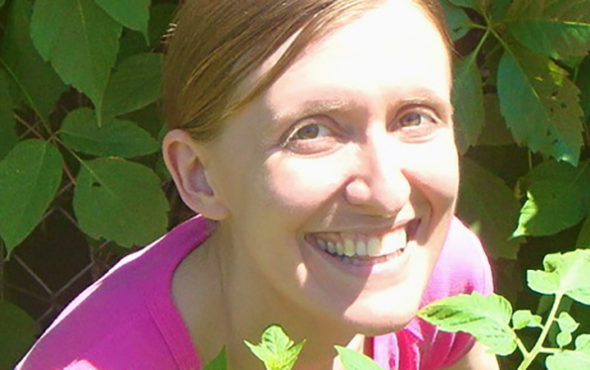We can't stop marveling at how much great advice Bridget managed to pack into this interview. From working her way slowly toward the role she's in now to pinpointing the details of a positive work environment, it feels like Bridget let us in on all the secrets, and inspired us along the way.
When did you know that you wanted to work in food?
My freshman year of college I joined the sustainable agriculture student group on campus, and it was the first time I put my hands in the soil. I had read and studied so much about environmental issues with agriculture and how food is central to every culture, but in a cerebral way. This was the first time somebody handed me a seedling and told me to put it in the ground. I realized that this is what it all came down to: soil, plants, and the person hoping to harvest it one day.
How did you get your current good food job?
I started out as a member of the Women, Food and Agriculture Network. I donated to the organization, read the newsletters, attended the annual conference, and when I had a chance in grad school to do a project for an organization my first thought was WFAN. By the time the organization announced in their newsletter that they were accepting applications for their next Executive Director, I already had a connection with the organization. I believe in supporting what you love and following organizations that are doing good work. It's the right thing to do, and it may open up opportunities for you.
How did your previous work or life experience prepare you for a good food job?
I believe there are two types of jobs: those that scare the hell out of you and that there is no way to be fully prepared for, and jobs that are so straightforward they are boring. I've only gone after scary jobs, and I haven't been fully prepared for any of them! That said, running a student organization was good experience for me. After getting my hands dirty in my freshman year, I became chair of F.H. King: Students of Sustainable Agriculture at the University of Wisconsin, Madison. Learning to corral busy students, work my way through University bureaucracy, and apply for funding were all skills that I took with me.
What was the greatest obstacle you had to overcome in pursuing your Good Food Job dream?
Women don't apply for leadership roles as much as men do, partly because men tend to believe they can learn what they need to on the job, while women tend to believe there is something else we need to know first before we are ready. My biggest obstacle was accepting that while I didn't feel ready, I would likely never feel ready, and I should go after my dream job anyway. What helped me then, and what has helped me countless times since then, are my peers leading nonprofits, both men and women. This is my network, which I put time into building, and they have helped me through a lot of tough choices.
Name one positive thing that a former employer taught you that you continue to appreciate?
Too many to name! The power of bringing fruit and cookies to a meeting. How a weekly, half-hour check-in to talk about whatever I need to talk about increases my effectiveness and reduces my stress. Chatting with coworkers may seem frivolous but is essential for team building. The expectation that even in your dream job only a third of your work is what you truly love; another third is work that you don't really care about, and another third is work that you hate, because even in your dream job you don't love your job 100% of the time. Did I mention the power of fruit and cookies?
What can you identify as the greatest opportunities in food right now?
I am continually inspired by the women in our beginning farmer training program, Harvesting Our Potential. They have great ideas for farms, and they are getting the resources and experience to make their dreams happen. They are also realizing that they have this network of women farmers across the country, and instead of being seen as competitors they are welcomed as part of a community. The opportunities are there for women to become farmers, and I wish more women were empowered to take advantage of it!
If you could be compensated for your work with something other than money, what would it be?
Chocolate and massages. Not at the same time.









